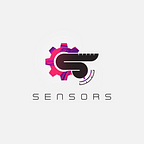Fitting into the Industry
The scope of Instrumentation and Control Engineering is widespread around various industries. India has become a hub for manufacturing industries to set up plants for their global businesses.
Like everything in this world, Industries have also evolved and have stepped into the automation of processes. By learning the Control Engineering courses and using the various project facilities undergoing in the department, we have learnt the design of Control Systems in PLC, DCS and SCADA which are the methods used by the industries to automate processes. Major Industries like steel, oil and gas, petrochemical, power, ceramics, automobile etc. have a separate team of Instrumentation Engineers for this purpose.
This makes the demand for Instrumentation & Control Engineers evergreen in the modern industries.
In specific, the role of Instrumentation Engineers is way more wide in Petrochemical and Paper Industries where there are hardcore processes to be carried out and lot of pipings and measurements involved. The core Instrumentation subjects such as Sensors, Transducers, Industrial Instrumentation, Process Control, Analytical Instrumentation, Power Plant Instrumentation, Biomedical Instrumentation etc. give the students an exposure to the instruments used in industries for the measurement of process variables. This creates a demand for Instrumentation Engineers in the above mentioned industries for the design and maintenance of measuring instruments and other process equipments such as control valves.
An important and evergreen industry is the pharmaceutical manufacturing industry. Many Indian and foreign companies have set up manufacturing plants all across India and have shown their interest in recruiting talented engineers from the Instrumentation and Control Engineering stream.
Another major demand for Instrumentation and Control Engineering graduates come from the banking and corresponding consulting firms due to their knowledge in the design of Neural Networks and Fuzzy Logic based systems and their skills in Machine Learning so as to accelerate these sectors with the use of Artificial Intelligence techniques.
A major aspect to be looked at is the strong foundation of the students in Analog and Digital Electronics, Microprocessors and Microcontrollers, Embedded Systems, Op-amps, VLSI and programming ability in various languages such as C, FORTRAN, Python, Arduino, MATLAB, R etc. This makes an Instrumentation and Control Engineer fit for both Hardware and Software industry.
Control Engineering concepts are purely based on mathematical abilities and application of logic and these qualities are very much important in the software and analytics industries as well.
The aspiration of most of the students is to work in a core industry compared to software and analytics so as to apply their knowledge and innovative mind. Also, it is an area where extensive learning and quick growth is assured. The work also gets better with experience as Industrial Evolution will step into its next stages and a lot of new challenges will be laid.
But of course, the goals, aspirations and the market situation will determine where we end up.
Ultimately, the motto is to “Do what you love and love what you do.”
— An article by Anand Srikrishna, Placement Coordinator 2017–2018: Instrumentation and Control Engineering.
